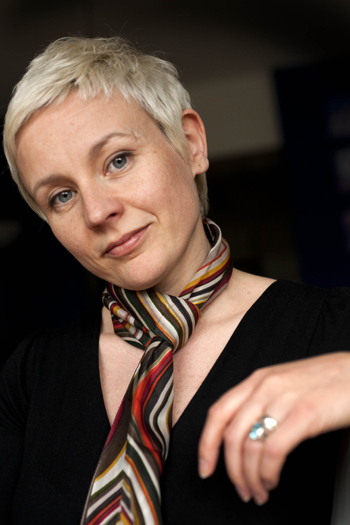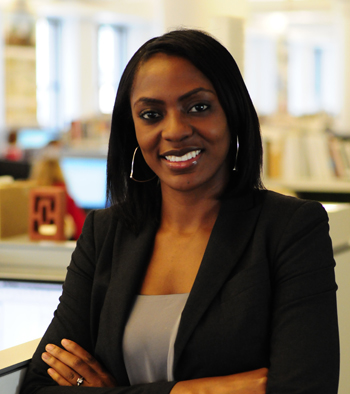
What is your name, age, and location?
Lee Chalmers, 38, London, U.K.
What is your profession?
I am a Leadership Development Consultant and Coach, and a political blogger and campaigner for the advancement of women in business and politics. I’ve been known to write and make documentaries.
What did you study in school and what degrees do you have?
I have a BA and MA in Philosophy. I also got a couple of years into a Philosophy PhD before realizing that working full time didn’t make room for PhD studies.
What was your first job?
I worked in the local ice-cream shop from age 13 as a Saturday girl and in the school holidays. I learned that working with the general public can be a pretty difficult thing and it taught me not to take what strangers say too personally. It also taught me that I can always make my own money.
Who or what inspired you to break into your current line of work?
After university I worked for the booksellers Borders as a store manager. Though I enjoyed that I realized that I didn’t want to be doing it in my 30’s, nor could I see an interesting career path so I decided to start my training as a Psychotherapist. During the first year of training, which I did one day a week whilst still working full time, I discovered the world of coaching and leadership development, which felt much more future oriented and inspiring, so I decided to train as a coach. A conversation with my boss prompted me to just hand in my notice and start a coaching business. I had a three month notice period when I had to generate as much income as I needed. This was the scariest and yet most inspiring time of my life and I survived. 7 years later it seems the most courageous decision I ever made.
Now as well as working with leaders, I argue for greater gender parity in business and politics. This has been inspired by consistently seeing the lack of senior female managers, female academics, female politicians and in fact, the lack in general of high status women. Now I work in various ways to increase the status of women. I want the world to value women as much as they value men, so we can put an end of to millions of deaths of girls and women around the world due to this lack of parity.
Name/describe what has been your most rewarding project so far?
Though I am not part of the running of it anymore, co-founding The Downing Street Project was extremely rewarding, if not the easiest thing I have ever done. It exists to foster conversations about how women can be valuable in the political arena in the UK. I stepped away from it, as it was a non-partisan organization, so I could do what I was asking other women to do, run for political office for a specific party. Before that, making the film Visionary Dialogues was especially rewarding, bringing together 9 women to talk about what they saw the future of women to be and what we need to do in order to get there.
Name/describe one incident when being a woman has helped your career?
I think that being a woman in the world of politics makes it easier to be seen, and therefore have an impact, as there are a limited number of us involved. Other than that, I struggle to find an answer to that question.
Name/describe one incident when being a woman has hindered your career?
This is easier to answer. Working in the corporate world in the UK is challenging for women. I have been asked to be more ‘masculine’ in my style when working with senior men, I’ve been excluded from conversations with male corporate clients, I’ve been sidelined from career discussions because they were taking place in a ‘boys club’ focused on football and drinking. I’ve been told that the reason I got paid less than men doing the same job at the same level is because the company ‘followed industry standards’. I am short as well as female which compounds the challenge!
Who is your role model or mentor (alive or dead)?
I don’t have a role model and in fact have never had one. There are people that I admire but I have always struggled to carve my own path.
If you could give one piece of advice to a woman starting out in your field, what would it be?
Don’t be too concerned about what other people think of you. Men may sideline you or not take you seriously but persevere. Other women may not always be your friend either. Taking leadership, being willing to be responsible for making a difference, puts you in the firing line in any profession so we need to have a strong home base and key people that we can turn to for support when the going gets tough. I remind myself that the work I do on increasing the status of women is for my niece, my future children, grandchildren and the world. That sustains me when it seems to be an overwhelming job.
Links:
– Interview by Elena Rossini

